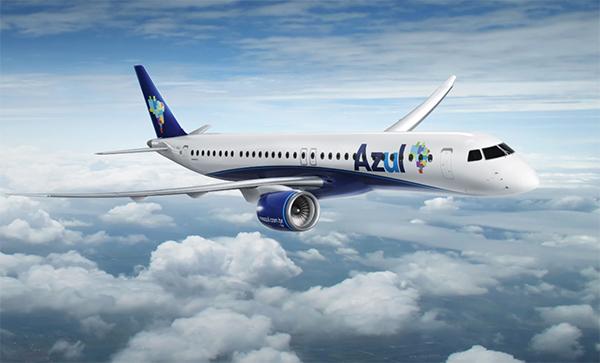3月の機材納入状況:さらなる悪化の前触れか

新型コロナウィルスに関連してIATAが最近発表した予測によると、この第2四半期における航空会社の投資額は、コロナ危機以前は170億ドルと予想されていたところ、今やゼロになる見込みだ。
航空会社は現金を確保するべく、機材のデリバリーを可能な限り延期またはキャンセルしている。
航空機メーカーは、3月の時点で航空会社が弱っていることを明確に感じていた。Aviation Week Fleet Data Servicesによれば、航空会社とリース会社はデハヴィランド・DHC-6ツインオッターからエアバスA350-1000に至る多様な機種を含めても、わずか47機しか受領していない。1月は53機だったが、メーカー各社は年間目標を達成するべく12月に可能な限り多くの機体を納入しようとするため、1月の納入数は例年少ないものだ。そして2月は79機だった。もちろん、この1~3月の納入数にボーイング737MAXは含まれていない。
参考までに、2019年の2月にはボーイング社は32機の737を納入しており、そのうち26機はMAXだった。翌月のエチオピア航空302便墜落事故を受けて、737MAXの納入は停止された。
ボーイング・エアバス両社とも、公式な数値(新規注文はゼロだが)を近日中に発表する。Aviation Weekのデータを見ると、全メーカーが3月に打撃を受けたが、各社に及ぼした影響がイコールだったわけではない。エアバス社が3月の納入数の2/3を占めている。同社はA220を2機、A320neoファミリーを25機(驚くべきことに、内9機はA321neoだ)、A321を1機、A350-900を2機納入した。A330neoやA380の納入はなかった。
一方、ここ1年以上、最新のナローボディ機を納入できていないボーイング社にとっては、民間機事業の主な収益源は787だ。当社データによれば、ボーイング社は3月に787を8機、777を3機、767を1機納入している。
もちろん、コロナ危機は他メーカーにも打撃を与えている。最も重要なのはエンブラエル社で、3月にE175を1機、2月には他2機しか納入できていない。キリバス航空とヘルヴェティック・エアウェイズ向けのE190-E2を1機ずつ1~2月にかけて納入し、アズールブラジル航空向けに今年唯一のE195-E2を2月に納入した。
ATR社は2機のATR72を3月に納入。今ほど環境が悪くなかった1月にも4機を納入している。しかし、四半期でわずか6機というのは例年と比べてきわめて少ない。同社は2019年に68機を納入している。
ほんの数週間前、エアバス社の最高商務責任者Christian Scherer 氏は、Aviation Weekのリース業界特集の中でリース会社を称賛した。彼は、航空会社が財政難に陥って機材のデリバリーを受けられない状況では、リース会社が極めて重要な緩衝材として機能することを強調した。しかし、今回のコロナ危機では不安な兆候も見えており、リース会社にも期待できない可能性がある。3月に納入された47機の内、リース会社に納入されたのは9機のみだ。その内訳はA320neoが3機、A321neoが2機、787が2機(1機はボーイングキャピタル向け)、ATR72が2機だ。また、先週後半にAvalon社が75機のボーイング737MAXの発注を取り消し、短中期的に航空会社に対する影響力を落としたことも、個別の出来事としてはもちろん、ここからさらに状況が悪化していく前兆としても、深刻に捉える必要がある。
以上は、Jens FlottauがAviation Dailyいた記事です。 Aviation Dailyは、民間航空に焦点を当てた経営幹部に重要な洞察をお伝えいたします。航空会社と空港の戦略、主要航空会社のデータスナップショット、運賃データ、および国際的なカバレッジを毎日お届けいたします。Aviation Dailyをもっと知りたい場合、こちらをクリックして下さい。
In one of its latest COVID-19-related updates IATA estimated that the airline industry will reduce its second quarter investment spending from $17 billion planned in pre-crisis days to essentially zero.
Airlines defer or cancel deliveries wherever they can to protect cash.
But aircraft manufacturers clearly felt the weakness of their customers in the coronavirus crisis already in March. According to Aviation Week Fleet Data Services, airlines and lessors took delivery of just 47 aircraft ranging from the De Havilland Twin Otter to the Airbus A350-1000. That compares to 53 in January, which seasonally is always a weak month as OEMs try to churn out all the aircraft possible in December of the previous year to meet their delivery targets, and to 79 in February. All three months, of course, are absent of Boeing 737 MAX deliveries.
For context, Boeing delivered 32 737s in February 2019, 26 of which were MAXs. Deliveries were halted the following month after the crash of Ethiopian Airlines flight 302.
Boeing and Airbus will only publish their official figures—including no new orders—in the coming days. Aviation Week data shows that all manufacturers were hit in March, but not evenly. Airbus accounted for almost two thirds of industry deliveries during the month. The European manufacturer handed over two A220s, 25 A320neo family aircraft (among them nine A321neos remarkably), one A321 and two A350-900s. No A330neos or A380s were handed over.
Unable to deliver its latest generation narrowbodies for over one year, Boeing’s main revenue producer in the commercial aircraft business was the 787. Customers took delivery of eight aircraft in March according to Aviation Week data. Boeing also delivered three 777s and one 767.
The crisis is also felt by other manufacturers. Most importantly, Embraer delivered a single E175 last month and only two additional units in February. Air Kiribati and Helvetic took one E190-E2 each in January and February respectively while Azul accepted the only E195-E2 this year in February.
ATR delivered two ATR 72s in March and another four in January when the environment was still not as hostile. But the six aircraft for the quarter are a far cry from normal output. ATR delivered 68 aircraft in 2019.
Just a few weeks ago Airbus chief commercial officer Christian Scherer praised lessors in an Aviation Week feature on the leasing industry. He highlighted that they serve as an extremely important cushion in crises when airlines cannot take delivery of aircraft because they are in financial distress. This time, worrying early signs are that it could be different: Of the 47 aircraft delivered in March, only nine went to lessors—three A320neos, two A321neos, two 787s (one of which went to Boeing Capital) and two ATR 72s. That Avolon late last week canceled an order for 75 yet-unplaced Boeing 737 MAXs to reduce its near- to mid-term exposure to airlines is also highly unwelcome, both as an individual decision and as further sign of trouble ahead.